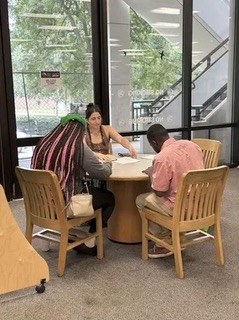While punitive and carceral approaches have been the principal responses to gender-based violence in the United States, there is growing interest in using restorative approaches to heal from the harm caused, promote accountability and ensure that the cycle of violence is not perpetuated.
Danielle Sered, Common Justice Director, says that all solutions to violence should adhere to four guiding principles. Interventions to prevent and intervene in violence should:
- Be survivor-centered - The needs of survivors should be centered and prioritized
- Accountability-based - Common Justice highlights five key elements of accountability: (1) acknowledging one’s responsibility for one’s actions, (2) acknowledging the impact of one’s actions on others, (3) expressing genuine remorse, (4) taking actions to repair the harm to the degree possible, and (5) no longer committing similar harm.
- Safety-driven - our response to violence should prioritize community safety and finding ways of ensuring safety, while minimizing isolation and coercion.
- Racially equitable - First of all, survivors of color are less likely: to have their needs met, their needs centered, and their desires heeded. Second of all, we have to focus on the systemic and structural racial inequities that are a driver of gender-based violence, like racial inequity found in our schools, employment, housing, healthcare and mental health support.
At GCC, we see the Restorative Justice Movement and the Transformative Justice Movement as sister movements seeking to promote and enact these guiding principles. As GCC explores ways of incorporating restorative approaches to gender-based violence in Athens and beyond, we seek to learn from the transformative justice (TJ) movement. Mia Mingus, writer and organizer with the Bay Area Transformative Justice Collective, describes Transformative Justice on her blog Leaving Evidence as “a political framework for responding to violence, harm & abuse…without creating more violence.”
We invite you to learn more about the transformative justice movement and efforts to end gender based violence by exploring TJ resources and reflections here.



















).png)



